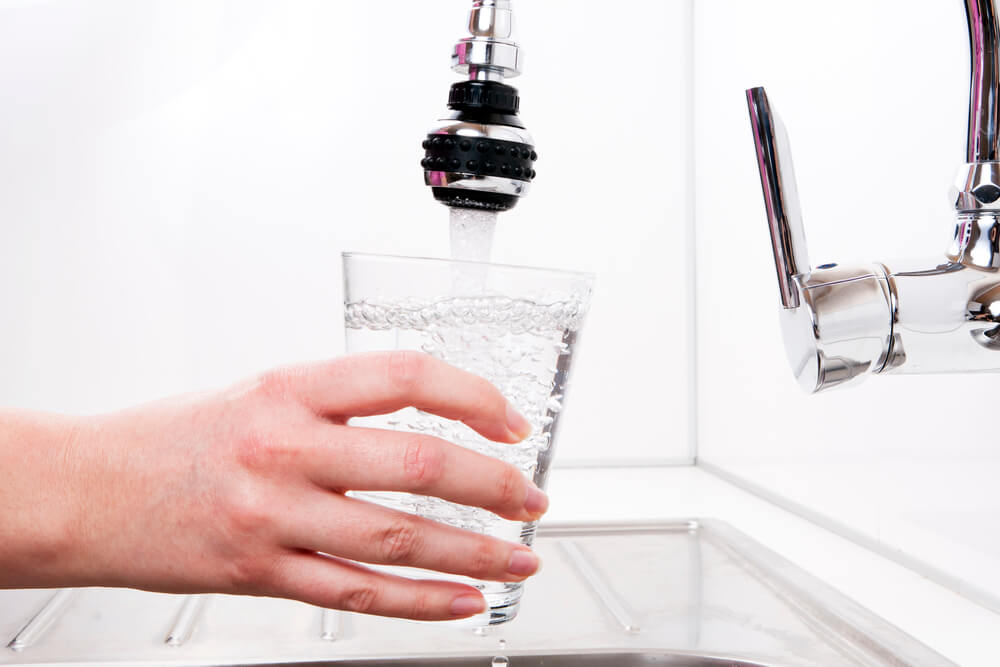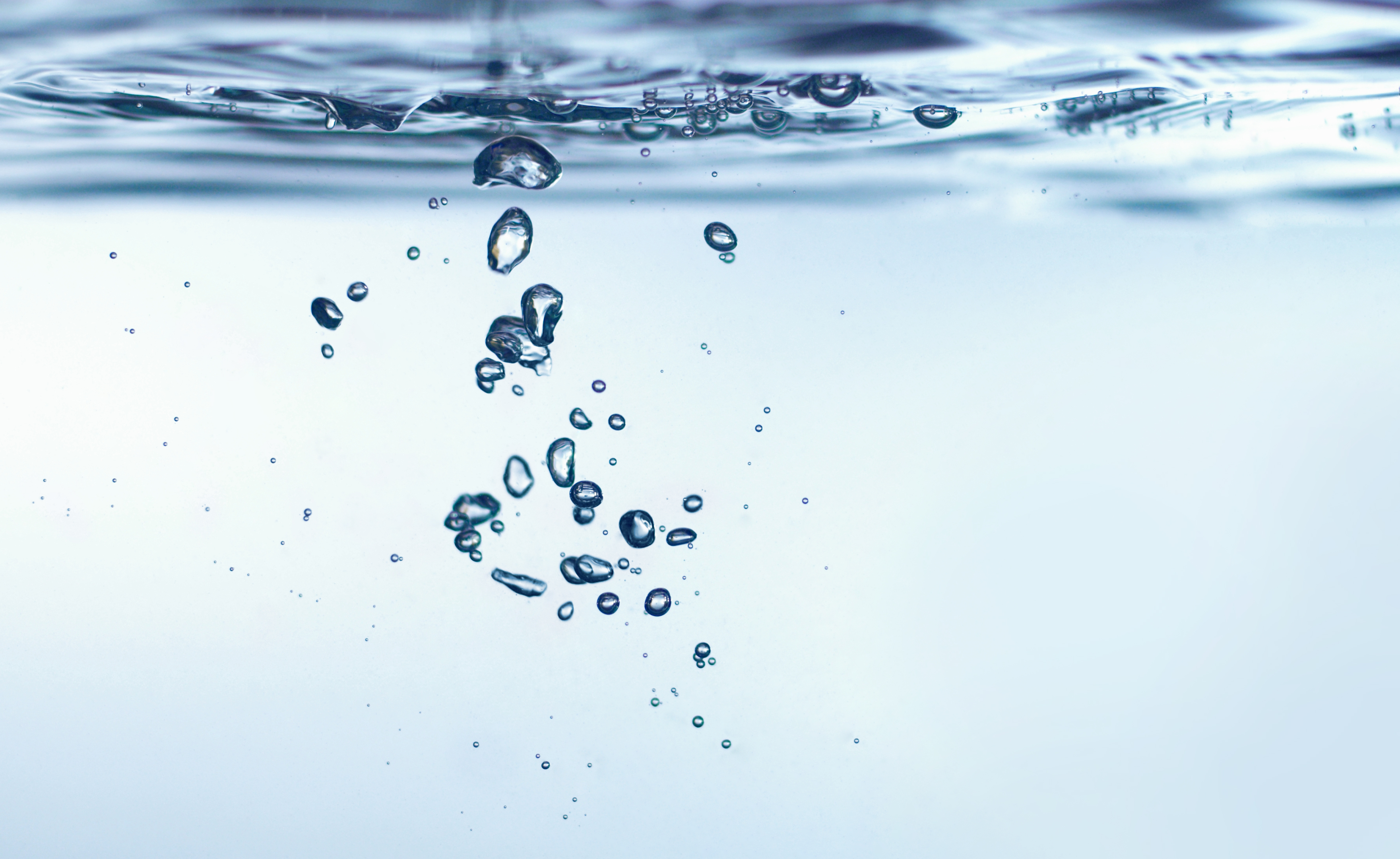
There is no resource more important to us than the water that sustains us.
While many residents of Tennessee have ready access to water from their tap, not as many people have access to a properly clean water supply. The amount of contaminants that taint the water that Americans view as safe to drink in their homes could boggle the mind in how numerous they are. Water SHOULD be safe. And perhaps you’ve taken measures to try and make sure your water IS safe. But not all methods are created equal. Countertop filters or water filter pitchers may bring peace of mind, but they miss a fair amount of particles that you don’t want going into your body, and they aren’t able to do anything for the water that’s going directly into your appliances from your system flow. That’s where’s you’ll need more a focused water filtration system. We’re going to go through some of the most effective household water treatment systems that a consumer can use to make sure that the water in their home meets their expectations on purity.
Do I Even Need a Water Filtration System?
Fair question. In the world of bottled water and every variety of water filter pitcher, one might think that you’re already set to go with safe filtered water. And I won’t downplay such devices, they have their place. But ultimately, they’re not going to filter out contaminants or or sulfates that are all too common in the Tennessee water supply. Judging water from appearance alone isn’t a good measure of how safe or healthy it is, and while those pitchers may improve the taste of the water, they do very little to purify the water from bacteria and viruses. And considering the water that runs into appliances, like washing machines or your home’s shower system, that water will never even be run through those types of filters.
Water filtration systems are the comprehensive solution to the issue of whole house quality control for water. They remove impurities, chemicals, and sediment that no counter or sink filter would be able to, and do so at a scale that allows for filtered water use in large-volume appliances. That’s a feat that’s only able to be accomplished with some form of whole house water filtration system offered by Pure Southern Water.
Reverse Osmosis Filter
Reverse Osmosis is one of the more modern, cutting edge approaches to purifying your home’s water. The process removes dirt, sediment, and chemicals from your drinking water by passing said water through multiple filters, each targeting a particular sort of sediment or contaminant. Each filter is unique and specially designed to only allow certain things to pass through, so by the end of the process, you’re left with water far purer than standard tap water. From the unwanted annoyances of things like fluoride, salts, or chlorine, to the more sinister contaminants of things like arsenic, a reverse osmosis system remains a useful tool for any homeowner’s arsenal.
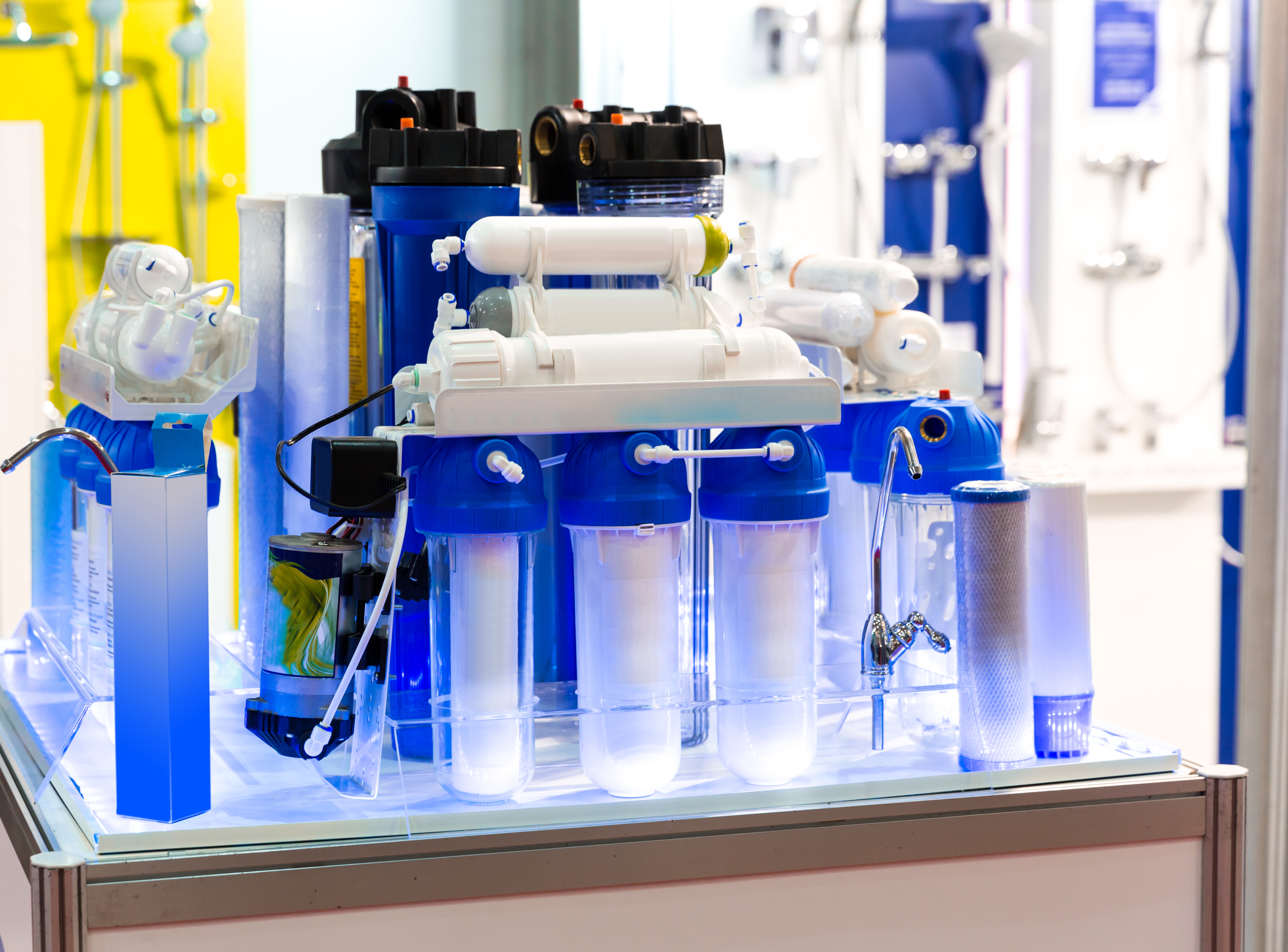
A Reverse Osmosis Water Cleaning Filter
Price and Power of a Reverse Osmosis Filter System
Despite the power and efficiency of reverse osmosis systems, they’re actually quite modest in terms of the physical footprint they take up in your home. Most can be safely nestled beneath the average Tennessee sink, though if you have need of a higher volume filter, it could be tucked away in a closet or corner. The volume of water an RO system would need to handle at any given time can range from 3 to 4 gallons for a single occupant, to upwards of 18 to 22 gallons for a family of four to six.
Soft Water Filtration
One might want to compare a reverse osmosis system to something like a water softener. Well the water softener is useful for removing calcium from your water supply and would help when washing clothes or showering, but a water softener isn’t designed to filter out harmful contaminants. Meanwhile, most reverse osmosis systems soften water during the process to some degree in addition to their contaminant filtration. Unless your water is exceptionally hard, a reverse osmosis system is simply a more efficacious choice, and if your water is exceptionally hard, you could simply pair an RO system with a standalone water softener, running water first through the softener, and then through the RO system.
Reverse Osmosis Filter System Benefits
While the benefits of an RO system usually revolve around one’s bodily health though ensuring clean drinking water, the filtered, contaminant-free water serves to benefit more than just one’s own body. Coffee makers, dishwashers, laundry machines–all these appliances rely on moving water through their systems to perform their basic function. Running, hard, contaminant laden water through these machines will drastically reduce their life cycle, requiring more frequent repairs and less efficient use. Water is not just human lifeblood. It’s the foundation of many of the appliances and tools we use on a daily basis, and properly filtered water can been a boon to that end.

Healthy water is paramount to healthy living.
Ultimately, Reverse Osmosis will leave you with water quality that typically exceeds that which you would find in bottled water purchased at a store, but you’re free of the guilt and waste of using that much plastic. With a discrete, under-sink filter design that’s east to install, the RO system is a must for the conscious Tennessee household. Plus, as will be the case with nearly all of the options discussed in this article, with the relative affordability of RO systems though purchase plans or leasing agreements through Pure Southern Water, you very well well likely end up paying less money when compared to constantly changing out pitcher or fridge filters or buying case after case of bottled water.
Ionic Exchange Water Filter
If you dread your daily showers drenching you in hard water and coating you with an all too unpleasant film, Ionic Exchange filters (also known as Water Softeners) are what you’ll likely need. To get a bit technical, these filters swap out the Calcium Ions found in hard water for for Sodium or Hydrogen. Hence the name. The output water is free of that scaly texture and salty taste that is so often associated with hard water. This filter can take care of nitrates, sulfates, fluorides, silica, arsenic, barium, & other chlorates too, so you won’t just be netting a better shower with this filter.
Hard Water Quality
You probably notice the hard water when showering, but that hard water can be a detriment in a variety of scenarios, not just when you’re striving for perfect hair. Constantly running hard water through any appliance that uses hot water can reduce its working lifetime and efficiency by a noticeable degree. Water heaters, washing machines, dishwashers, and even coffeemakers will find themselves headed to an early retirement if they’re constantly handling extremely hard water. Some of these appliances have some built-in filtration system, but they aren’t going to catch things like high calcium content in water. And while our coffee aficionados might think themselves safe by running their water through a water filter pitcher, it’s not going to protect their pricy espresso maker nor give as good a coffee taste as could be had through properly filtering the water.
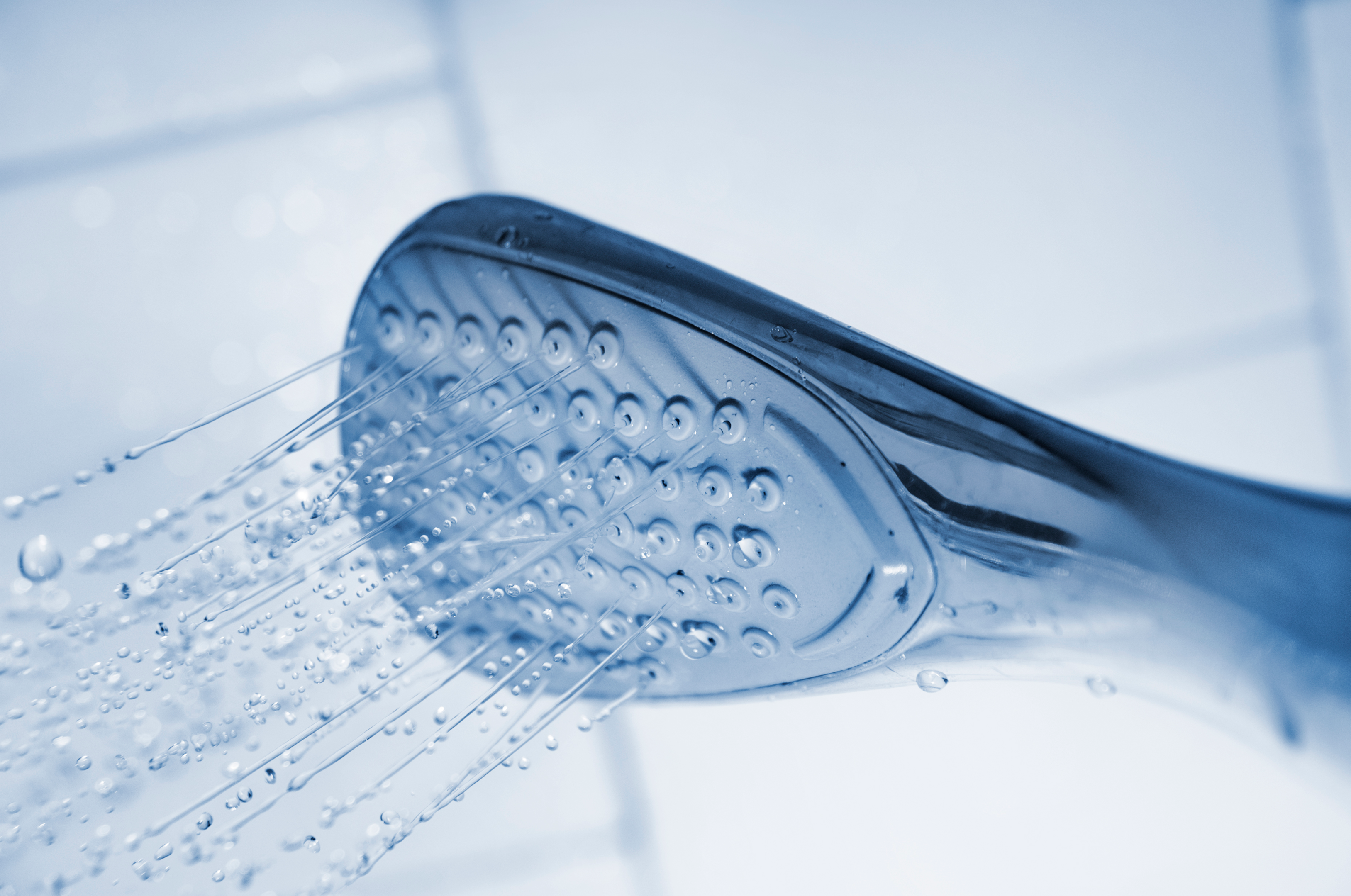
Showers should be a place to relax and get clean, not be caked in hard mineral film.
Ionic filtration systems are fairly versatile, coming in tanks of a variety of sizes, and require very minimal maintenance, running strong and long for years at a time. They’re a reasonable choice for those whose water supply is naturally hard (which is a large majority of American households) or for someone who runs a fair few alliances with hot water. Coffee snobs and soccer moms alike will get ample benefit out of this filtration system. Better tasting water and better running washing machines can be attributed to the filtered water from this particular installation.
Carbon Filter
Some of these water filters or water softeners also have a built in activated carbon filter, which serves to remove that chlorine taste you might have in your water. Pools are great for swimming, but not so much for things like drinking. Well, maybe, we won’t judge. Everyone’s got their preference. But these sorts of filters use compressed carbon to filter out sediment, pesticides, and other such contaminants, though it does tend to reduce the flow rate of the water a tad. When used early on in the filtration stage, you won’t tend to see any noticeable decrease in water pressure however, which is a nice point in favor of this additive water purification favor.
Sediment Water Filter
It would be best to think of this filter as the first line of defense for your water, easing the burden on subsequent filtration steps and the appliances that may leverage water early on in the usage chain. These filters are commonly used as the pretreatment filter for well water, making the subsequent output far easier on your system. As such, it’s nearly always combined with other water filters that are suited to tackle smaller, more minute material. All filters have specialties and limitations. Sediment filters are great for large, insoluble material and inorganic particles, but does little for contaminants. That where other systems that aren’t adept at filtering larger particles would come in. Water filtration is a team effort of a variety of devices, each with a specific purpose and aim.
How Does a Sediment Filter Work?
A sediment filter typically catches particles by trapping them though a cylindrical filtration mesh installed at the point of entry for water systems. What and how much material that this filter catches depends on the size and rating of the installed mesh, but typically, you could expect this filter to handle material from 2 millimeters all the way down to 2 microns. It’s important that this mesh is chosen with consideration to environment in which the filter is to be installed, as if the pores in the filtration mesh are too small, the filter may get more frequently clogged and require more frequent maintenance and replacement.
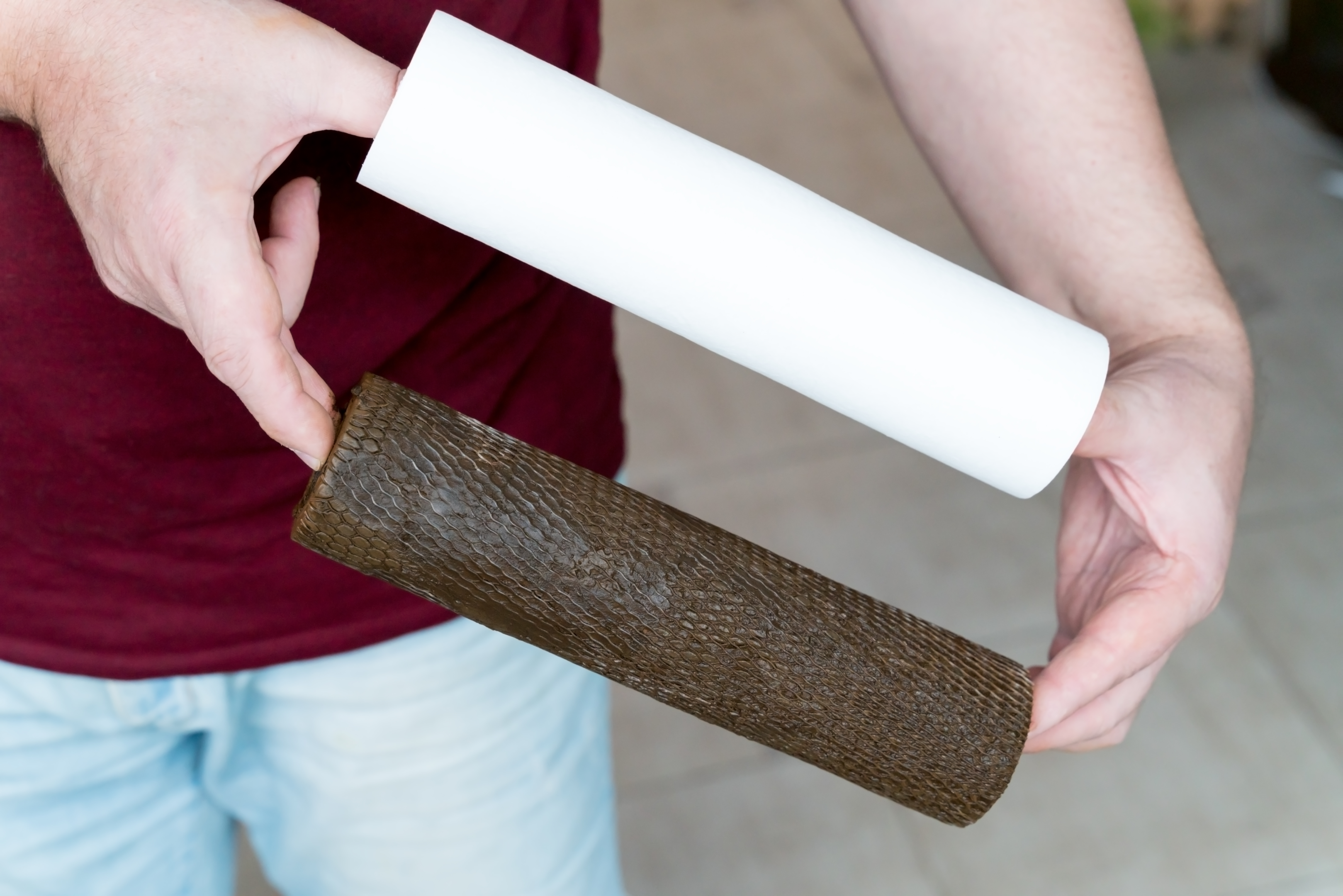
Dirty filters need regular cleaning
What Kinds of Sediment Filters are There?
There are 2 types of sediment filters that are typically used. Depth filters are fairly catch all in terms of sediment filters, thanks to their variety of pore sizes on their mesh. The outer later of the filter has larger holes to trap larger particles, and those holes and the particles that they collect get smaller and smaller as you go inward. Surface filters are typically made from a sort of polyester that’s meant solely to filter out larger particles. Smaller materials will be left for other filters down the line to take care of. It should be noted that these filters need to be cleaned or replaced regularly to be effective, the frequency of which would depend on the the quality of the water being brought into it. It should be noted that none of these filters can catch out heavy metals. Despite what one might expect from a filter meant to snag larger particles, that duty would fall to other filters down the chain.
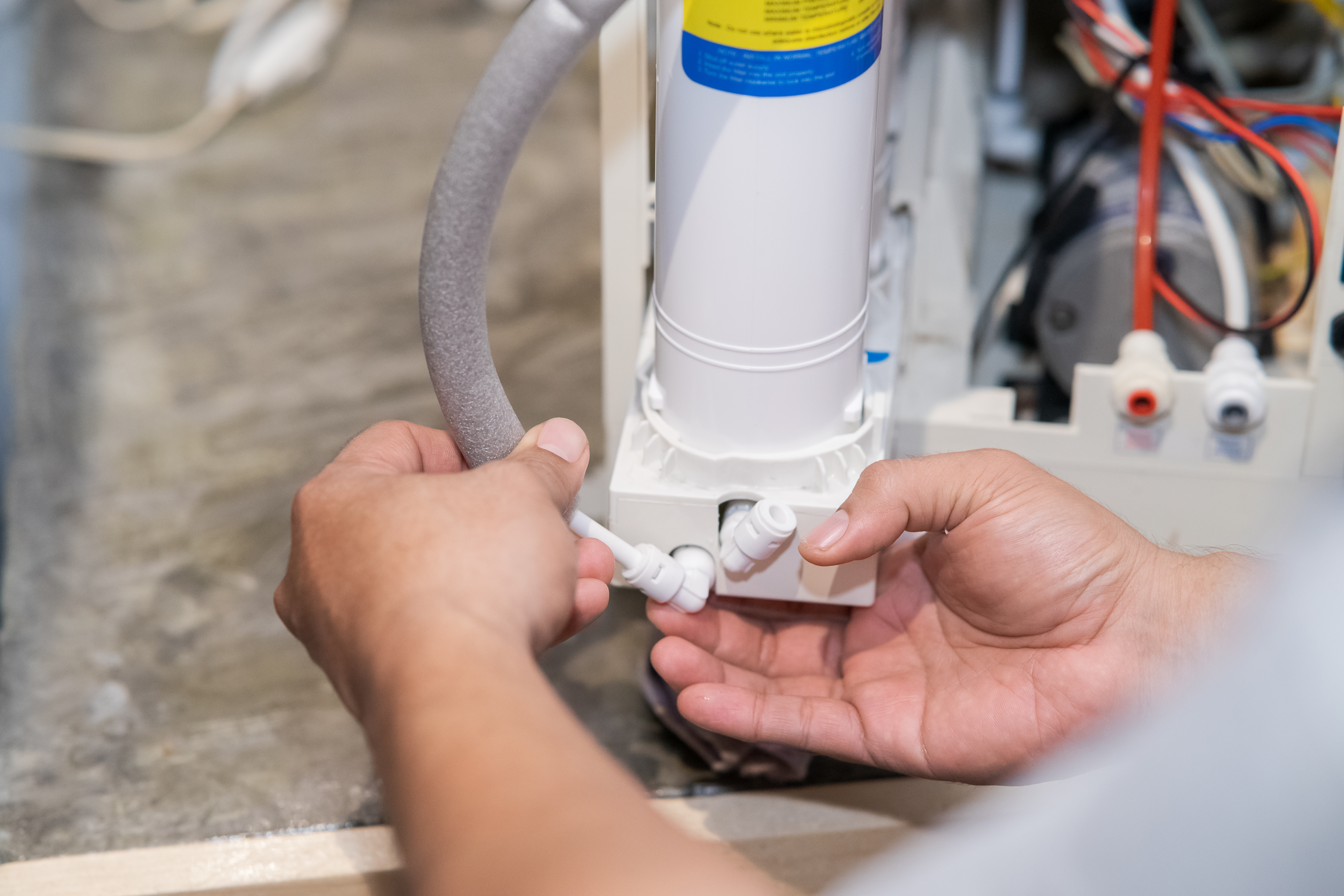
Sediment Filtration System
Do I need a Sediment Filter?
If you find that your water has visible suspended particles in it or any sort of brown or black buildup in appliances that push through a fair amount of water, it’s likely that you’ll need a sediment water filter to address the issue. Granular particles aren’t exactly what one wants to taste when downing a cold glass of water. While you might think this filter to be less than necessary if you’re using water for primarily industrial or outdoor purposes, as mentioned when discussing ionic exchange filters, unfiltered water can have adverse effects on mechanical systems that it’s run through.
Do Sediment Filters Remove Contaminants?
Sediment filters remove suspended particles and other solutes, but it will not remove bacteria or other small contaminants. If the particle is smaller than 1 micron, it can’t be expected to be caught by a sediment filter. Luckily, this filter is best used in combination with other filters that specialize in removing other contaminants, so provided that you’re being comprehensive about your water filter system, you won’t have to worry about volatile organic compounds in your water. Many hand make light work and many filters make clean water!
Okay, so Which Water Filter is Right for Me?
Ultimately, the best water filter is determined by the quality of your particular water supply, the amount of people that would be using the water at any given time, the physical space in which the filter would be residing, and the specific expectations you have of your water’s purity. Pure Southern Water offers free estimates and a variety of whole house water system solutions at a very affordable price. Call us at (540) 667-1644 today to speak to a water professional and safeguard your water!

